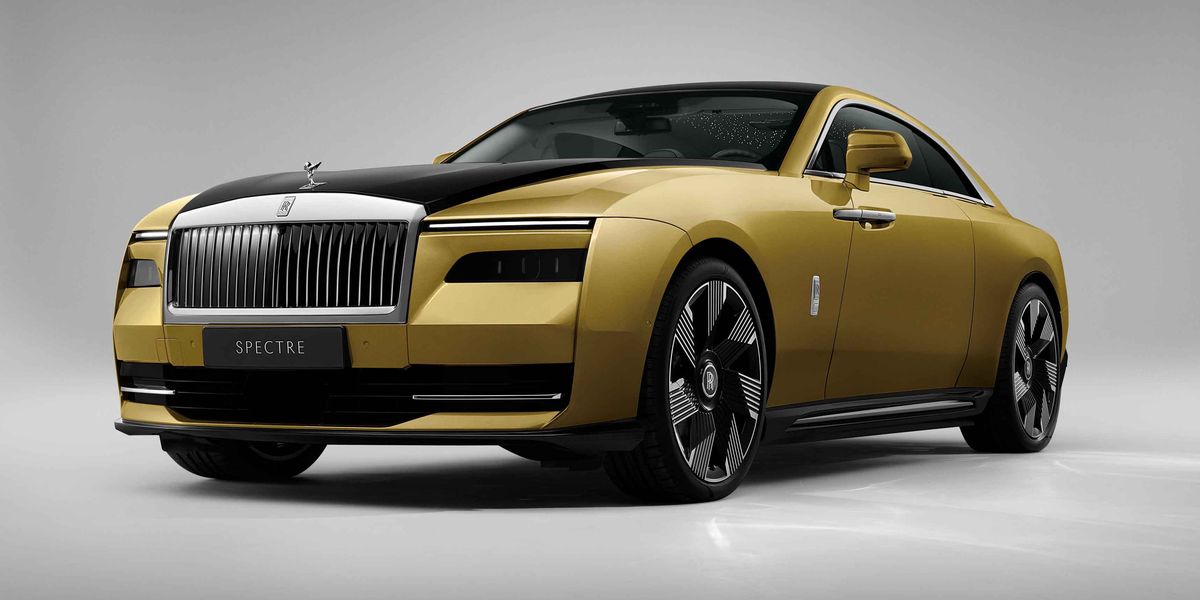Introduction:
Luxury automaker Rolls-Royce Motor Cars is considering a potential shift away from batteries and toward hydrogen fuel cells for its future vehicle lineup. While the brand recently introduced its first fully battery-electric vehicle (BEV), the CEO of Rolls-Royce, Torsten Müller-Ötvös, expressed the possibility of transitioning to fuel-cell electric vehicle (FCEV) technology when it becomes more advanced. This move, however, does not involve investing in hydrogen internal combustion engine (ICE) technology, according to Müller-Ötvös.
Hydrogen Fuel Cells as an Alternative:
Müller-Ötvös referred to hydrogen fuel cells as another form of battery, stating that if hydrogen is to be used in the future, fuel cells are the way forward. He explained that fuel cells are essentially energy storage devices, similar to batteries, and highlighted that the decision to explore FCEV technology would depend on advancements in the field. Rolls-Royce’s distinct customer base and market position could potentially make the brand well-suited for the development of hydrogen fuel cell vehicles, although specific reasons for their receptiveness to FCEVs were not elaborated upon.
Rolls-Royce’s Vision for the Future:
The Rolls-Royce CEO expressed openness to the idea of pursuing fuel cell technology when the timing and technology align. He stated that Rolls-Royce may move away from batteries and transition into fuel cells, emphasizing the need for advanced technology before making such a shift. This vision aligns with the brand’s commitment to zero-emissions vehicles, as it plans to cease production of its iconic V12 fossil-fuel combustion engine by 2030.
Contrasting Hydrogen Approaches:
Rolls-Royce’s parent company, BMW, has already begun limited production of a fuel cell electric version of its iX5 model. In contrast, Rolls-Royce is focusing on battery-electric vehicles with the launch of its Spectre model. The Spectre boasts a range of 520 km on a full battery charge, slightly lower than its fossil fuel-powered counterpart, the Phantom, which offers a range of 710 km. However, Müller-Ötvös dismissed the possibility of adopting hydrogen combustion engines, noting that BMW had previously tested and found them to be inefficient.
Challenges and Considerations:
While some automakers are exploring hydrogen internal combustion engines for heavy trucking applications due to weight considerations and concerns about transitioning to electric powertrains, Rolls-Royce remains committed to the development of fuel cell technology. Müller-Ötvös acknowledged that the hydrogen infrastructure lags behind the electric charging network, with many Spectre owners already having access to charging points. The CEO did not delve into the challenges associated with hydrogen infrastructure but indicated that it is a factor to consider.
Conclusion:
Rolls-Royce Motor Cars, the luxury automaker renowned for its craftsmanship and innovation, is contemplating a potential shift from batteries to hydrogen fuel cells for its future vehicle offerings. While the brand’s first fully electric car, the Spectre, was recently introduced, Rolls-Royce’s CEO expressed interest in fuel cell electric vehicle technology as it advances. By embracing this alternative form of energy storage, Rolls-Royce aims to align its product lineup with its commitment to producing zero-emissions vehicles. However, the company has ruled out the adoption of hydrogen internal combustion engines, opting for the more efficient fuel cell approach.




